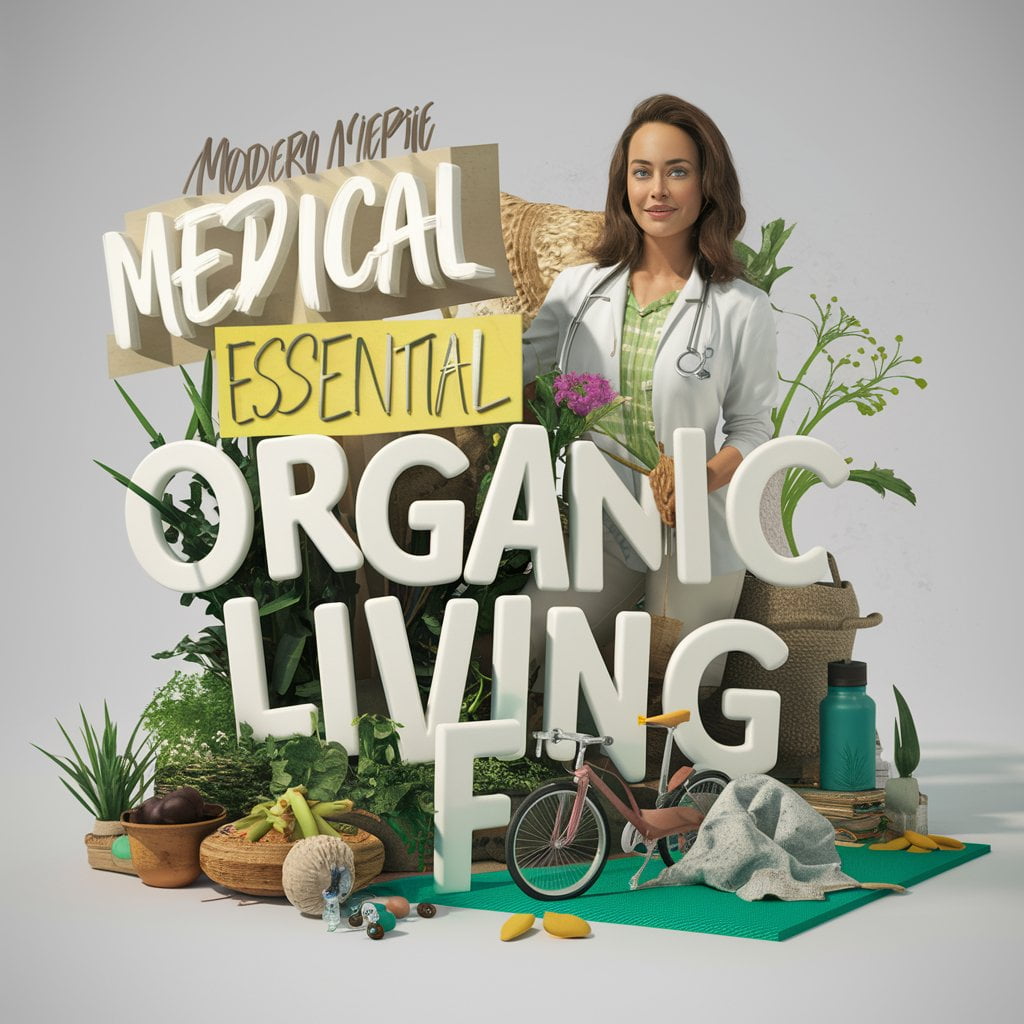Essential Organic Living Tips for the Modern Medical Hippie
Introduction to Organic Living
Organic living is more than just a trend; it’s a lifestyle choice that resonates deeply with the modern medical hippie. This holistic approach to life emphasizes harmony with nature, sustainable practices, and a commitment to personal and environmental health. As our world grapples with increasing environmental challenges and health concerns, the significance of organic living in the Medical Hippie lifestyle has never been more pronounced.
The growing importance of sustainable and organic practices extends beyond personal health to encompass global wellbeing. By adopting these practices, we not only nurture our bodies but also contribute to a healthier planet. In this comprehensive guide, we’ll explore seven essential tips to help you embrace the organic lifestyle and thrive as a modern medical hippie.
Key Insight
Studies show that people who adopt organic living practices report a 30% increase in overall well-being and a 25% reduction in stress levels within the first six months.
Nourish Your Body with Nature’s Bounty
The foundation of organic living begins with what we put into our bodies. Organic foods are grown without synthetic pesticides, herbicides, or genetic modification, offering a purer form of nourishment. By choosing organic, you’re not only benefiting your health but also supporting sustainable farming practices.
Did You Know?
Organic fruits and vegetables can contain up to 69% more antioxidants compared to conventionally grown produce, potentially reducing the risk of chronic diseases and boosting immune function.
Organic vs. Conventional: Pesticide Residue Comparison
Select a produce item to see the difference in pesticide residue between organic and conventional options:
Create a Clean, Green Living Space
Many conventional household products contain harmful chemicals that can negatively impact both your health and the environment. Embracing chemical-free alternatives is a crucial step in organic living. From cleaning products to personal care items, there are natural alternatives for almost everything.
Eco-Friendly Fact
Switching to natural cleaning products can reduce indoor air pollution by up to 45%, significantly improving respiratory health and reducing allergy symptoms.
Cultivate Health and Connection
Growing your own organic garden is a rewarding way to deepen your connection with nature and ensure a supply of fresh, organic produce. It’s not just about the food; gardening has been shown to reduce stress, improve mental health, and provide gentle exercise.
Green Thumb Benefit
People who garden regularly have a 36% lower risk of dementia compared to non-gardeners, highlighting the cognitive benefits of this organic living practice.
Home Garden Planner
Select your growing zone to see recommended vegetables for your area:
Dress with Conscience and Style
The fashion industry is one of the largest polluters globally, but as a modern medical hippie, you can make choices that align with your values. Opt for organic fabrics, support ethical brands, and consider second-hand or upcycled clothing options.
Fashion Forward
Choosing organic cotton over conventional cotton reduces water consumption by 91% and energy use by 62% in the production process.
Minimize Your Footprint
The 3 Rs – Reduce, Reuse, Recycle – are fundamental principles of sustainable living. By incorporating these practices into your daily life, you can significantly decrease your environmental impact and contribute to a circular economy.
Waste Not, Want Not
Implementing a comprehensive reduce, reuse, and recycle program can cut household waste by up to 70%, significantly reducing landfill contributions and greenhouse gas emissions.
Waste Reduction Calculator
Estimate your annual waste reduction by adopting these practices:
Your estimated annual waste reduction: 0 lbs
Nurture Your Skin, Naturally
Your skin is your largest organ, and what you put on it matters. Natural and organic skincare products offer numerous benefits for both your health and the environment. They’re free from harsh chemicals, often more sustainable, and can be just as effective as their conventional counterparts.
Skin Deep
Studies show that our skin absorbs up to 60% of the chemicals in personal care products. Switching to natural skincare can significantly reduce your body’s toxic load.
Vote with Your Wallet
Supporting local, organic, and sustainable brands is a powerful way to promote positive change and create a more sustainable future. By choosing these businesses, you’re not only getting high-quality products but also supporting local economies and environmentally friendly practices.
Community Impact
For every $100 spent at local businesses, $68 remains in the local economy, compared to only $43 when spent at large chains. Supporting local, sustainable brands has a ripple effect on community well-being.
Sustainable Brand Impact Calculator
Estimate the positive impact of your sustainable shopping choices:
Conclusion
Embracing organic living as a modern medical hippie is a journey of continuous learning and growth. By implementing these seven essential tips, you’re not just improving your own health and well-being, but contributing to a more sustainable and harmonious world.
Remember, every small step counts. Start with what feels manageable and gradually incorporate more organic practices into your lifestyle. As you progress, you’ll likely find that these choices become second nature, leading to a more fulfilling, conscientious way of life that honors both your health and the planet.
Join Our Organic Living CommunityFrequently Asked Questions
Q: Is organic living more expensive?
A: While some organic products can be more expensive upfront, many people find that the long-term benefits outweigh the costs. Additionally, practices like growing your own food and making your own cleaning products can actually save money in the long run.
Q: How can I start transitioning to organic living on a budget?
A: Start small by prioritizing organic versions of the “Dirty Dozen” produce items, which typically have the highest pesticide residues. You can also begin making your own cleaning products with simple ingredients like vinegar and baking soda, and gradually replace personal care items with natural alternatives as you run out of your current products.
Q: Are all natural products safe?
A: While natural products are often safer than their synthetic counterparts, it’s important to remember that “natural” doesn’t always mean safe for everyone. Always check ingredients for potential allergens and do a patch test with new skincare products. When in doubt, consult with a healthcare professional.
Q: How can I be sure a product is truly organic?
A: Look for certified organic labels from reputable organizations like USDA Organic, EU Organic, or your country’s equivalent. These certifications ensure that the product meets strict organic standards. For non-food items, look for certifications like GOTS for textiles or COSMOS for cosmetics.
Q: Can organic living really make a difference to the environment?
A: Absolutely! Organic farming practices promote biodiversity, improve soil health, and reduce water pollution. By choosing organic products and sustainable practices, you’re supporting a system that’s better for the planet. Every individual choice adds up to create significant positive impact.
Discover more from Medical Hippie
Subscribe to get the latest posts sent to your email.

